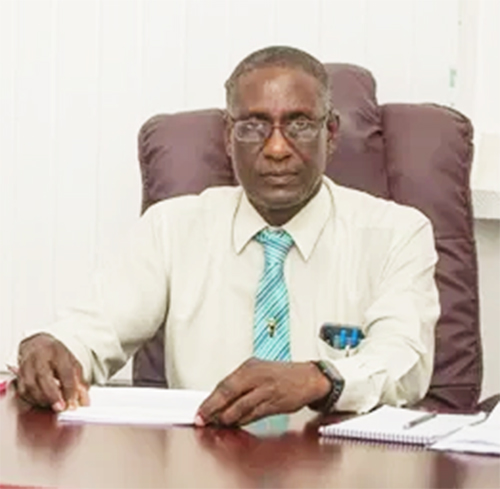Director of Medical and Professional Services at the Georgetown Public Hospital (GPH) Dr. Fawcett Jeffrey has suggested that the recent rise in the number of deaths related to COVID-19 could be linked to patients having additional conditions.
Dr. Jeffrey explained on Tuesday that in the early stages of the outbreak in Guyana, health officials were expecting a surge in cases and deaths but that did not materialise as only a small number of cases were recorded and the numbers rose slowly.
“In the last like month, month and a half, we have noticed a massive climb in the number of cases and of course when you have COVID-19 and you have comorbidities, this can lead to your demise,” he explained.
According to Dr. Jeffrey, a number of the reports on deaths that the GPH has reviewed did not show a lack of medication, ventilation or other supporting factors as being the cause of the patients’ deaths. “…We have a committee that reviews the deaths to come up with answers to see what could we do better so that the next patient that comes to us we may be able to avoid that outcome,” he noted.
Dr. Jeffrey also mentioned that though it was said internationally that the elderly would be the group most affected by the virus, in Guyana there has been quite a younger age group of persons who have succumbed. “But all of them had some comorbid condition that was associated with their demise” he added.
Meanwhile, Jeffrey also emphasised that efforts have been made to ensure that there is no cross contamination at the GPH’s COVID-19 transition unit.
This was in response to the revelation that cross contamination was occurring at the hospital’s transition unit.
President Irfaan Ali on Monday had stated that a number of investments were made to have the Infectious Disease hospital at Liliendaal equipped as a transition unit following cross contamination at the Georgetown facility.
When asked about the issue, Dr. Jeffrey explained that cross contamination can take place when an infected patient is being housed in close proximity to another patient and for some “accidental” reason the virus would move to the patient who was not affected initially.
While Dr. Jeffrey did not directly say if there was any case of cross-contamination at the unit, he mentioned that there are a range of issues that can create cross contamination. “But I can say at no point has there been any deliberate attempt by anyone to facilitate cross contamination,” he declared while assuring that the institution has protocols in place to mitigate such issues.
“I know that my staff working in the transition unit have made all efforts possible to separate the patients in rooms that usually would have six beds normally. We only put four beds so we gave that distance between patients,” he explained.
Dr Jeffrey added that they also try to ensure that patients in the facility wear masks at all times. But he noted that they also have an issue with compliance as some patients who may be symptomatic and simply do not follow the rules when asked to wear masks.
He also explained that for most patients in the unit, the staff are unaware of their status until the results return so therefore precautions are not taken until their status is known. “Always in a transition area in any institution in the world there is always a risk… we have to take all the necessary precautions we have to have our staff adequately prepared for these situations,” he said.
